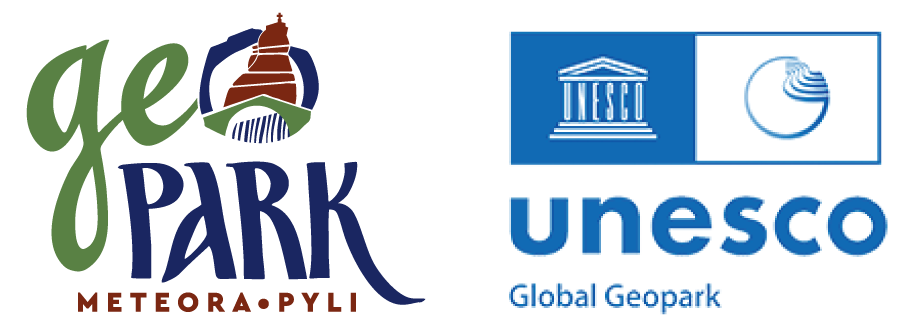Integrated Spatial Investment (ISI) of the Meteora – Pyli Geopark
Executive Summary
The Integrated Spatial Investment (ISI) of the Meteora – Pyli Geopark is a strategic development tool aiming at the sustainable utilization of the region’s natural and cultural heritage. Its ultimate objective is to secure the area’s inclusion in the UNESCO Global Geoparks Network. Through targeted interventions and projects, this initiative focuses on preserving geological heritage, promoting geotourism, and raising environmental awareness among local communities and visitors.
The Meteora – Pyli Geopark includes unique geological formations, protected areas rich in biodiversity, archaeological and historical landmarks, as well as a vibrant intangible cultural heritage expressed through traditional settlements, museums, local crafts, and cultural events. Gastronomy and local products are incorporated into the geopark’s geotourism strategy (GEOfood), reinforcing the local economy.
The ISI serves as a strategic framework for the sustainable development of the region, capitalizing on its natural and cultural assets. A key goal is to establish the Geopark as a growth pole by showcasing its geosites, environmental and archaeological landmarks, religious monuments, museums, and traditional arts. The project’s strategy connects geo-education with sustainable tourism and the promotion of local gastronomy (GEOfood), aiming to establish a development model that respects the environment while boosting the local economy.
The ISI of the Meteora – Pyli Geopark is structured around seven core priority axes, aligned with the region’s unique features:
- Protection and conservation of geological formations and biodiversity through actions such as cave protection and ecosystem restoration.
- Environmental awareness and education via geo-education programs, partnerships with schools and universities, and the development of digital content.
- Promotion of sustainable tourism and geotourism through infrastructure such as trails and visitor centers.
- Improvement of accessibility, including the development of road networks to ensure inclusive access.
- Support for scientific research and innovation through partnerships with research institutions and the application of environmental technologies.
- Social and economic development, focusing on job creation and the strengthening of local entrepreneurship in agri-food and tourism sectors.
- Preservation of cultural heritage and traditions, highlighting monuments, local customs, and the organization of annual cultural events.
The core axes of the ISI emphasize environmental protection, the development of ecotourism, attraction of investment, and enhancement of social cohesion. Specifically, through actions such as showcasing geological formations and historical monuments, improving accessibility, and developing educational programs, the project aspires to position the area as a compelling destination for both visitors and investors.
This framework is complemented by the promotion of cultural events (GEOFestivals), which contribute to preserving cultural identity and improving residents’ quality of life.
The implementation of the Integrated Spatial Investment of the Meteora – Pyli Geopark is expected to enhance the region’s appeal as a destination for experiential and adventure tourism, improve the quality of life for residents, safeguard the natural and cultural identity of the area. Ultimately, it will create the necessary conditions for the successful nomination and inclusion of the Meteora – Pyli Geopark in the UNESCO Global Geoparks Network.
View the Executive Summary of the ISI here.
